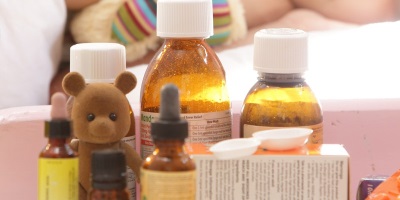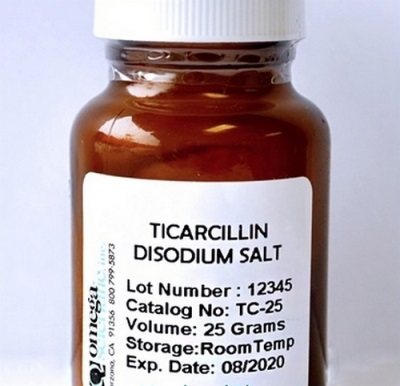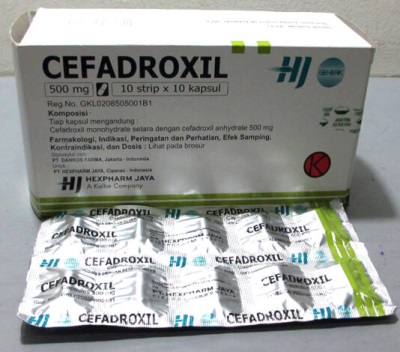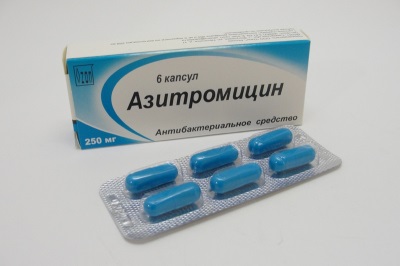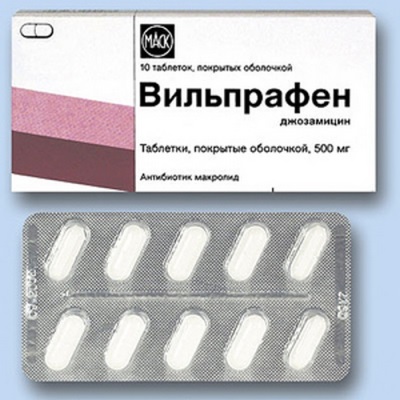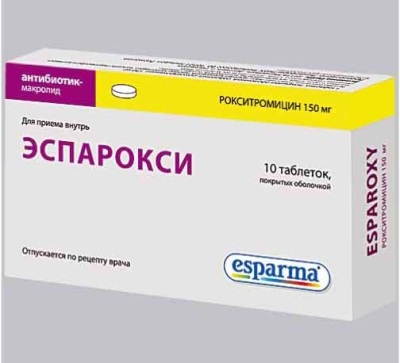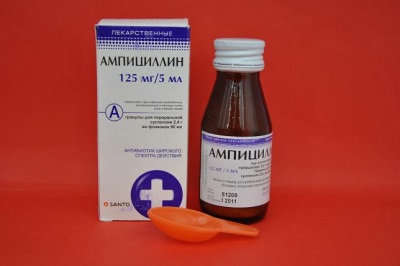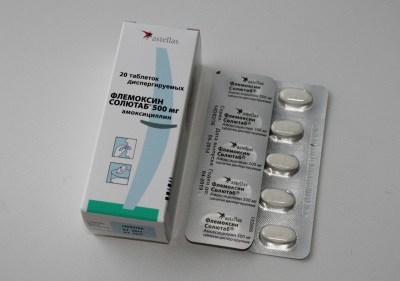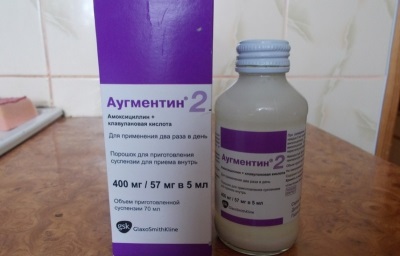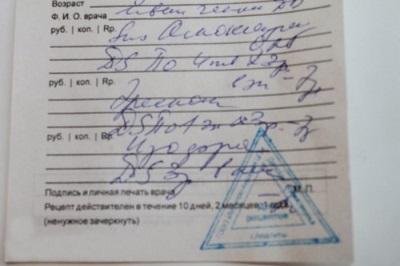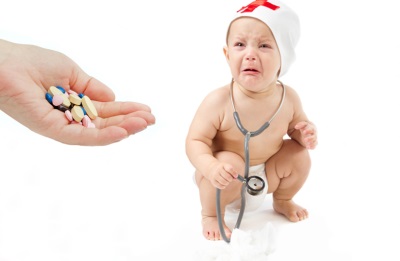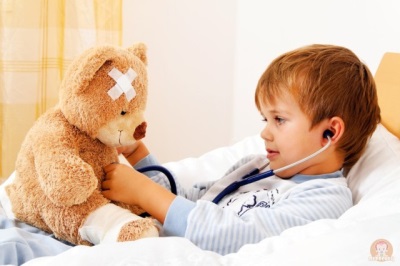Antibiotics for children’s flu
According to a poll conducted by sociologists, more than 40% of Russians are absolutely sure that the flu and ARVI can be cured with antibiotics. This is nothing more than a common misconception. Antibiotics for influenza and acute respiratory viral infections, both in children and adults, are completely useless; moreover, it is very harmful.
Diseases such as influenza and ARVI are caused by viruses that have entered the body, and antibiotics are powerless against most viruses. Their spectrum of action is bacteria, fungi, and conditionally pathogenic flora.
But the whole set of side effects accompanying the course of treatment with antibiotics (dysbiosis, thrush, weakened immunity, anemia) is provided to the child. Do you need any extra illnesses?
Influenza and ARVI should be treated exclusively with specially developed antiviral agents. To them at the discretion of physicians, may prescribe expectorant drugs, antitussive drugs and immunomodulators. However, each of us at least once faced with the fact that the visiting doctor, after the child’s diagnosis “Influenza” was established, prescribes antibiotic therapy for the baby. What does it mean?
This in no way speaks of the incompetence of the doctor. Simply, the bacterial infection most likely joined the viral infection, but it already requires the use of antibiotics.
Another reason the doctor may prescribe antibiotics for children with influenza is elementary "reinsurance." Suppose the doctor did everything right and prescribed an antiviral agent. And after a few days the babies start pneumonia or worse, meningitis. Parents, of course, blame the doctor in inattentive treatment. Therefore, it is easier for the doctor to prescribe antibiotics immediately, thereby “securing” himself.
It is no secret that viruses quite often cause various complications, and rare flu occurs without concomitant bacterial infections. Besides, The main ability of any virus is a sharp decrease in human immunity, and most pathogenic bacteria simply cannot fail to take advantage of the situation. The body of a patient with a viral infection is a very gratifying ground for the life of bacteria. To stop their activity, the doctor prescribes antibiotics. In this case, the viral infection itself will have to be treated with other drugs.
What complications caused by the flu are treated with antibiotics:
- Pneumonia. Lung inflammation is a very serious complication of a viral infection. It occurs quite often, and in 100% of cases it will require treatment with antibiotics of the penicillin, cephalosporin family or macrolide group.
- Otitis. Inflammation of the middle ear in viral ailments due to the anatomical features of the ear structure. A special secret, which is produced by the cells of the organ, must flow down the throat through the Eustachian tube, and it swells in the case of influenza or ARVI and interferes with the secretion. As a result, bacteria begin to multiply right in the middle ear, in a warm and nutrient medium. Otitis also in 100% of cases will require treatment with antibiotics. Moreover, it may be drops with an antibacterial composition, and tablets, and even injections (for especially severe cases).
- Pyelonephritis. Inflammation of the kidneys begins due to the ability of viruses to reduce immunity, which we have already indicated. At this dangerous disease can not immediately pay attention, because with the flu temperatureAs a rule, already increased, and aching and nagging pain in the lower back can easily be mistaken for muscle pain during a viral infection. Treatment of kidney complications will require mandatory antibiotic therapy. Moreover, it will be adequate to the degree of organ damage.
- Bronchitis. With a viral infection, inflammation of the upper bronchi (the so-called open bronchitis) develops in every second sick child. The process is swift, and treatment of this complication will also require antibiotics in combination with mucolytic drugs.
- Sinusitis. The mucous membrane of the maxillary sinuses is very similar in structure to that of the larynx, and with ARVI, as with ARD, it is one of the first to be affected. The sinusitis that occurs with the flu usually occurs in an acute form and does not go into the chronic form. But his treatment will require strong antibiotics.
- Myocarditis. Inflammation of the muscles of the heart can cause many of the known viruses, but most often a serious complication develops when the influenza virus strains A and B. And the viruses do not cause bacterial infection, they themselves affect the heart muscle. Antibiotics for viral myocarditis are prescribed at the discretion of the doctor, depending on the form and severity of the complication. The main treatment, as you probably already guessed, will be antiviral.
- Meningitis. This is the most dangerous complication of influenza and ARVI. Shells of the brain or spinal cord are affected by bacteria that actively reproduce and multiply in the body, weakened by the virus, in the absence of proper treatment of the form of flu. As a rule, the disease with the flu will be called viral (serous) meningitis. It occurs more often than bacterial. And it is treated somewhat easier. However, without antibiotics, meningitis cannot be defeated.
Complications of the flu can manifest in a child and in other forms: lymphadenitis (inflammation of the lymph nodes), purulent angina.
Complications of influenza and ARVI do not always begin simultaneously with the course of a viral illness. Often, they can manifest themselves after 7 or even 10 days after the end of antiviral treatment. If the doctor has concerns about the possible development of dangerous complications in the child, he will prescribe antibiotics, without waiting for the visible symptoms of the complication. Many scientists consider such an approach obsolete and inappropriate. Moreover, clinical trials have shown that taking antibiotics for influenza only increases the likelihood of complications.
How does this happen? It's very simple: an antibiotic destroys the flora, including the useful one, and pathogenic organisms feel very comfortable on the "burned" soil. This dependence even managed to measure and calculate - the likelihood of getting complications is almost 20% higher for those who, with influenza or ARVI, decided to take antibacterial drugs.
The doctor will be obliged to prescribe antibiotics to completely healthy children, but only if if there is a person in their home, for example, meningitis. This will be done for prevention. And it will be justified.
Complications of influenza and ARVI are dangerous primarily for children and the elderly. Older people and children who have not yet turned 3 years old are harder to bear both the viral infection and its consequences.
When can I take antibiotics?
As we already figured out taking antibacterial drugs from the first day of viral illness makes no sense. But for 5-6 days after the onset of the disease, the doctor may prescribe antibiotics. Why so late? The fact is that in the absence of improvements in the child’s condition, it is after the fifth day of the illness that we can speak of the likely development of bacterial complications.
It is necessary to inform the doctor not only about the absence of improvements, but also about the deterioration of the condition, if new symptoms appear on the background of increased body temperature.
The main thing is to distinguish the bacterial cold from its viral counterpart. Here everything is more or less simple: a disease caused by viruses begins abruptly and develops rapidly. With bacterial (in fact, it is ORZ), symptoms can appear gradually - today is a runny nose, tomorrow's throat, and so on. Besides, viral infections are accompanied by high fever.
With bacterial cold, antibiotics are desirable. In this case, the doctor will prescribe a “baby” (optimal for children) drug: “Ampicillin», «Flemoxine Solutab"," Esparoxy "," Augmentin "and some others.
The list of antibiotic names that can be prescribed by a doctor to combat the complications of influenza is long.
Let's look at some of them:
- "Ticarcillin." it broad-spectrum antibiotic. It is widely used in the treatment of such complications of viral infections as bronchitis, pneumonia, pyelonephritis, and sinusitis. The drug is contraindicated in premature babies with impaired renal function. All the rest “Ticarcillin” is prescribed strictly individually, the dosage is calculated based on the weight and age of the child. Due to the rather impressive list of side effects, this drug is not prescribed to children up to 3 months.
- Cefadroxil. Antibiotic cephalosporin group of the first generation. It can be prescribed for the treatment of diseases of the upper and lower respiratory tract, kidneys, as well as if the complications of the flu manifest themselves in the form of conjunctivitis. The tool is prescribed to children with a body weight of more than 40 kg in an average dose of 1 -2 grams per day in 2 doses. For children whose weight is less than 40 kilograms, Cefadroxil is recommended in suspensions 30-50 mg per 1 kg of baby weight per day.
- «Azithromycin». Antibiotic - azalide. It is prescribed for the treatment of such complications of influenza and acute respiratory viral infections in children, such as angina, sinusitis, otitis, pneumonia, bronchitis. Children with a body weight of more than 10 kg: on the first day of administration - 10 mg per 1 kg of weight, from the second day and in the next 4 days - 5 mg per kg of baby's weight. The drug has a rather convenient form of release - it can be bought in tablets (for children from 6 years of age), capsules (for teenagers) or in syrup (for kids).
- "Josamycin." A bright representative of the macrolide group. Available in tablets and in suspension. Suitable for the treatment of otitis, sinusitis, acute bronchitis, pneumonia. For children up to 14 years, the dose ranges from 30 to 50 mg per pound of body weight of the child. The resulting amount is divided into three equal shares, taking "Josamycin" should be carried out three times a day. The average dose for adolescents over 14 years old is 1 gram per day, also in three doses.
- "Esparoxy". This antibiotic macrolide is widely used in pediatrics for the treatment of bacterial complications of influenza such as pneumonia, acute bronchitisotitis media Children under 12 years of age should be determined by the doctor. In no case should not try to do it yourself. For adolescents older than 12, the dose is equal to an adult - 150 mg. twice a day.
- «Ampicillin». This semi-synthetic representative of the penicillin series effectively showed itself in the treatment of sinusitis, otitis, bronchitis, pneumonia, meningitis. Available in the form of tablets, granules for self-preparation of the suspension, dry matter for injection. Children who weigh less than 20 kilograms are prescribed a maximum of 25 mg per kilogram of body weight per day. If the child weighs more than 20 kilos, the dosageAmpicillin"Grows up to 50-100 mg per kilogram of child's weight. When treating meningitis in low birth weight infants (weighing less than two kilograms at birth), the drug is administered intravenously at 25 mg per kg of body weight every 12 hours.
- «Flemoxine Solutab». A broad-spectrum antibiotic for penicillin. This antibiotic can rightly be called one of the most beloved pediatricians. The fact is that the formula of the drug allows it to quickly and effectively cope with most of the complications that occurred in a child after or during the flu. Especially often "Flemoksin" prescribed for bronchitis, pneumonia, pyelonephritis and glomerulonephritis.Children under 1 year old have a daily dose of 40-60 mg per pound of body weight of the child. This amount is divided into 2-3 doses. Children from one year to three years old can take 375 mg twice a day or 250 mg three times a day. Children over 10 years old - 375-500 mg three times a day. Moreover, the heavier the complication, the greater the number of antibiotic techniques is welcomed. That is, with otitis media of moderate severity, it is enough to take the medicine twice a day, and for purulent otitis, it is necessary to divide the daily dose into three approaches.
- Augmentin. An effective antibiotic for the penicillin family. "Augmentin" perfectly copes with bronchitis, bronchopneumonia, pyelonephritis. The drug is available in the form of a powder for suspension, tablets and a dry mixture for injection. Children from 0 to 2 months can give an antibiotic only in the hospital, under the supervision of a doctor. For babies under 2 years old, the doctor calculates the dosage himself, the children from 2 to 6 years old will be prescribed the drug in an average dose of 5 ml, and for children aged 7-12 years, the dose will be increased to 10 ml. In case of severe complications, the doctor may double the indicated numbers.
Learn about how and when antibiotics are required You can from the following video. Comments on the popular pediatric physician Komarovsky.
By recipe
More recently, antibiotics could be bought at any pharmacy, and people actively used these drugs, treated them with everything they could, and everything that was impossible, for example, began to drink antibiotics for the flu and give them to their children.
Doctors and scientists sounded the alarm and came up with a proposal to the legislature to ban free antibiotics. Now antibacterial drugs can be bought only by prescription. Is this better? Shows time. In any case, the caring parents were taken away the opportunity to stuff the child with antibiotics for any sneeze.
What medications to take with influenza or SARS?
The most effective in the treatment of influenza and SARS have proven antiviral drugs with interferon content. They make cells in the body immune to the virus, and also stimulate the immune system. But they have one big one, in my opinion, a minus - all antiviral agents perfectly resist viruses only on condition that they were started in advance, i.e. before catching the flu. If you start taking these drugs at the same time as the symptoms of a viral disease, the effect of the medication will be small.
Many pediatricians, including Dr. Komarovsky, who is popularly loved by the mothers of our country, believe that it is not necessary to fight the pills and injections with flu and ORVI as such; the child’s body must learn to overcome the virus on its own. In the same treatment need only complications of the flu, if any.
General rules for treatment of influenza:
- Required bed rest. It will avoid serious complications and will enable parents to notice in time if the complication began to develop.
- The child must provide access to fresh air, do not forget to ventilate the room. It is not necessary to close all the windows and muffle the baby, overheating with the flu in children contributes to the development of complications.
- Abundant drinking regime. Water is needed in the body of the baby to avoid the accumulation of toxins. You can give tea, including herbal, broth hips, chamomile, sage.
- At high temperatures with influenza or ARVI, the child must be given antipyretic drugs. Bacterial infections, which also occur with an increase in temperature, do not need to artificially reduce the heat. By the time the temperature normalizes, the effectiveness of the antibiotic is looked at. When a viral picture is reversed.
- For muscle pain, pain medication can be given to the child.
- If a bacterial infection has finally joined the viral infection, and the complication manifested itself in all its glory, during antibiotic treatment, do not forget about the preparations normalizing the intestinal microflora "Linnex", "Bifidumbacterin"Etc., to prevent the development of dysbiosis in a child. The body of the crumbs, already pretty weakened first by viruses and then by bacterial infection, needs protection.
- Never self-medicate. And the diagnosis of "flu" and its possible complications must be confirmed by the doctor, otherwise you, personally experimenting with your baby, risk inappropriate treatment to cripple his immune system, heart, brain, musculoskeletal system and respiratory organs.
In the next short video, the pediatric doctor Komarovsky gives recommendations for treating the flu.

